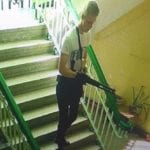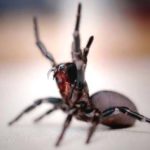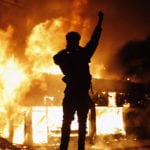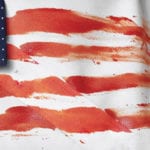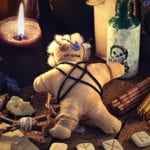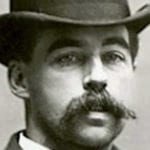 Crime
Crime  Crime
Crime  Technology
Technology 10 Hilariously Over-Engineered Solutions to Simple Problems
 Miscellaneous
Miscellaneous 10 Ironic News Stories Straight out of an Alanis Morissette Song
 Politics
Politics 10 Lesser-Known Far-Right Groups of the 21st Century
 History
History Ten Revealing Facts about Daily Domestic Life in the Old West
 Weird Stuff
Weird Stuff 10 Everyday Products Surprisingly Made by Inmates
 Movies and TV
Movies and TV 10 Actors Dragged out of Retirement for One Key Role
 Creepy
Creepy 10 Lesser-Known Shapeshifter Legends from Around the World
 Animals
Animals 10 Amazing Animal Tales from the Ancient World
 Gaming
Gaming 10 Game Characters Everyone Hated Playing
 Crime
Crime 10 Terrifying Serial Killers from Centuries Ago
 Technology
Technology 10 Hilariously Over-Engineered Solutions to Simple Problems
 Miscellaneous
Miscellaneous 10 Ironic News Stories Straight out of an Alanis Morissette Song
Who's Behind Listverse?

Jamie Frater
Head Editor
Jamie founded Listverse due to an insatiable desire to share fascinating, obscure, and bizarre facts. He has been a guest speaker on numerous national radio and television stations and is a five time published author.
More About Us Politics
Politics 10 Lesser-Known Far-Right Groups of the 21st Century
 History
History Ten Revealing Facts about Daily Domestic Life in the Old West
 Weird Stuff
Weird Stuff 10 Everyday Products Surprisingly Made by Inmates
 Movies and TV
Movies and TV 10 Actors Dragged out of Retirement for One Key Role
 Creepy
Creepy 10 Lesser-Known Shapeshifter Legends from Around the World
 Animals
Animals 10 Amazing Animal Tales from the Ancient World
 Gaming
Gaming 10 Game Characters Everyone Hated Playing
Top 10 Deadliest Rampage Killers
We’ve seen plenty of movies, books and documentaries on serial killers, but not so many on those who are so efficient and deadly that they can murder dozens of people in a single day. Murder sprees seem to have become more prominent over time – notably the tragedy in Norway, which is as recent as July 2011. This evil act will no doubt happen again thousands of times in the future. What I have presented in this list is no more than the proverbial tip of the iceberg.
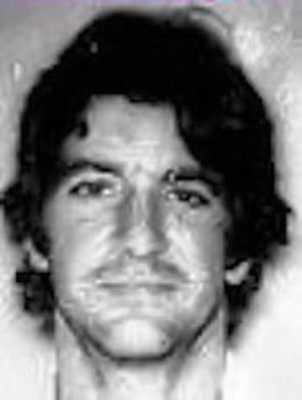
On October 16th, 1991, George Hennard, of Bell County Texas, drove his pick-up truck through the window of a Luby’s Cafeteria. The carnage that followed later became known as the Luby’s Massacre. Hennard crawled out of the vehicle and screamed at the top of his voice: “This is what Bell County has done to me!” before shooting the man closest to him, who had come to assist with the crash. He then ordered everyone not to move, before systematically targeting and stalking women (against whom he was bitterly prejudiced) and shooting them at point blank range with his Glock pistol.
Throughout the massacre, the patrons of the cafeteria could do no more than hide underneath tables. Nobody dared to make a dash for the door, even when Hennard stopped to reload. One man made an attempt to tackle Hennard so his family could escape, but Hennard simply gunned him down and carried on. The rampage lasted for 10 minutes before police arrived and the situation turned into a stand-off. Hennard was cornered in the restroom area and shot four times by police before he turned the pistol on himself and put an end to the madness. Hennard’s motivation for the massacre was apparently his hatred for women in general, whom he was constantly being rejected by.
Get inside the heads of history’s most depraved humans with Serial Killers: The Method and Madness of Monsters at Amazon.com!
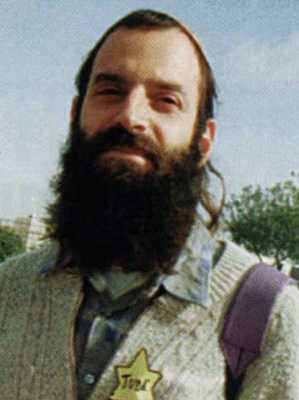
Baruch Goldstein was an American-born Israeli settler who perpetrated the notorious Cave of the Patriarchs massacre, in 1994. As a member of the militant Jewish Defense League, Goldstein heavily discriminated against Arabs throughout his life before the massacre. He worked as a physician in the Israeli Defense force, though he refused to treat wounded Arabs at all. After his close friend Rabbi Kahane was assassinated by Arab Extremists, Goldstein swore to take revenge. On February 25th, 1994, Goldstein entered the Cave of the Patriarchs, where 800 Palestinian Muslims were praying. He wore a military uniform in order to appear inconspicuous and blend in with the guards. Goldstein positioned himself at the back of the mosque, strategically covering the only exit. After waiting for a significant amount of time, he opened fire on the crowd with a Galil Assault Rifle.
In an incredibly short amount of time, Goldstein managed to shoot 29 people to death and wound over a hundred more. According to witnesses, he stood rigid, without moving from his original spot, and tried his hardest to injure as many people as possible by spraying bullets in all directions. The massacre came to an end when someone in the crowd smashed a fire extinguisher over Goldstein’s head, and proceeded to beat him to death with the help of many others present. Goldstein has since been described as a martyr by Jewish extremists, though his actions have been condemned by the Israeli Prime Minister, Yitzhak Rabin.

In May 1938, 21-year-old Toi Mutsuo was severely depressed and suffered from tuberculosis, which at the time was an incurable and terminal illness. He lived in the small village of Kaio, on the outskirts of Okayama in Japan. Mutsuo’s parents died when he was very young, forcing him to be brought up by his grandmother. His depression began when local women started to reject his advances because of his suffering of tuberculosis. Before the massacre, Mutsuo wrote suicide notes that implied the reason for his actions was the pain of rejection by his peers.
In the early hours of May 21st, 1938, Mutsuo used an axe to kill his grandmother via decapitation. He then proceeded to cut the electricity line to the village and strapped two torches to his head, before systematically moving from house to house and killing anyone he found inside. He used a shotgun for most of the killings, though he also made use of the axe and a katana. Before the sun came up, he committed suicide by shooting himself in the chest with the shotgun, but not before he’d taken the lives of 30 innocent people. At this point in history, the massacre perpetrated by Mutsuo was the worst ever to be committed by an individual.
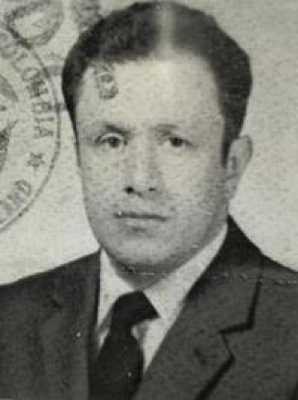
Campo Elias Delgado was a Colombian English teacher and Vietnam War veteran, who embarked on a horrific killing spree in a luxurious Pozzetto restaurant. Leading up to the massacre, Delgado had become increasingly lonely and his experiences in Vietnam had embittered him against society. He blamed his mother for most of his problems and worked up a sincere hatred for her over time. The murders began on the evening of December 4th, 1986, when Delgado followed one of his female students from school to her apartment, and subsequently killed her and her mother with a hunting knife. He then returned to his mother’s apartment and executed her with a single stab to the back of the neck. Delgado proceeded to wrap her body up in paper and set it on fire. When the fire alarm sounded, many of the other residents fled into the main hallway where Delgado was waiting for them. He stabbed one man to death before shooting five more with a .32 Caliber Revolver.
In the aftermath of this attack, he walked over to the Pozzetto restaurant with a briefcase that held five rounds of ammunition for his revolver. Once there, he ordered an expensive meal of Spaghetti alla Bolognese and ate for one hour, before walking over to the nearest diner and shooting her in the face at point blank range. Delgado subsequently killed 21 people in the restaurant by cornering his victims and shooting them in the forehead, before moving on to the next person. After 10 minutes of carnage the police arrived and engaged in a gunfight with Delgado, during which he was fatally shot in the temple.

Cho Seung-hui is infamous for murdering 32 pupils and teachers, during a school shooting known as the Virginia Tech Massacre in 2007. Cho suffered from mental problems and severe anxiety during his college years, especially after he was reprimanded for stalking two female students. He began to plan out his attack meticulously, by practicing his shooting technique at a local firing range. He also video-taped himself confessing to the massacre and indicating that he was angry at the world for treating him so badly. In his tapes he also expressed admiration for Eric Harris and Dylan Klebold; the perpetrators of the Columbine massacre. These tapes can be viewed on the internet, though most of Cho’s speech is just nonsensical ranting.
Cho began the attack on April 6th, 2007, by using a Walther semi-automatic pistol to murder two fellow students at a high-rise dormitory of Virginia Tech. He then returned to his room and mailed his video footage to NBC news, before re-arming himself with a Glock pistol. The second part of the massacre had been carefully planned. Cho entered Norris Hall and chained every single exit shut, to prevent people escaping. He even placed notes on the door that said that if anyone attempted to force them open, a bomb would explode. Cho then moved from classroom to classroom, shooting anyone he found inside. He worked hard to kill every single person in each classroom he targeted, and often shot students more than once in a double-tap fashion. Once students heard shots they attempted to barricade classrooms, which stopped Cho from entering on numerous occasions, although he did shoot and kill more than one student through a door. After approximately 9 minutes of Cho’s murderous rampage, the police arrived and forced their way through the chained-up doors. When Cho heard this, he shot himself directly in the face rather than face punishment.
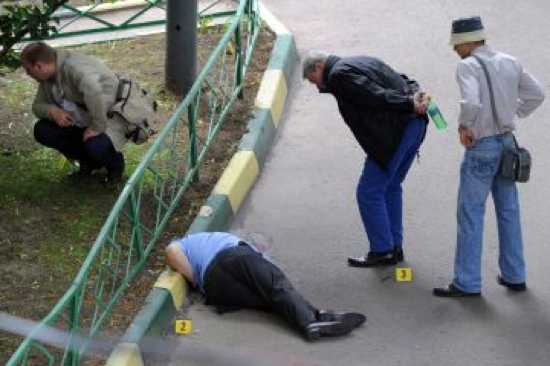
Ahmed Ibragimov was a Chechen bus driver who killed 34 Russians in the village of Mikenskaya, in 1999. The motive for Ibragimov’s rampage remains unknown and little information exists on the internet regarding the massacre. What is known is that, prior to the murders, Ibragimov had created a list of Russian targets, and had included information about where these individuals lived. He knew most of this information as he had previously worked as a postman. On October 8th, he went from house to house tracking down and systematically killing the people listed. His method was to call the victim outside under false pretenses, before shooting them dead with a rifle. He even murdered the 10 year-old child of one of his victims. In the aftermath of the massacre, Ibragimov went on the run for two days before being captured by rebels and delivered to the families of his victims, who proceeded to beat him to death with iron rods and leave his body in the street.
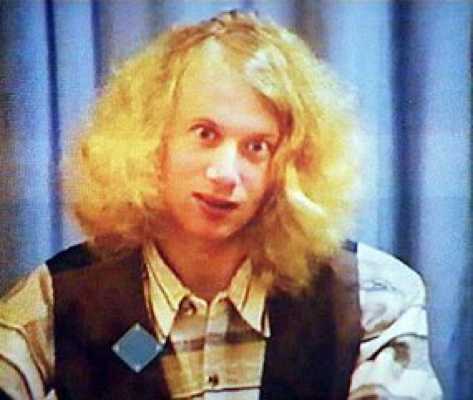
In 1996, Martin Bryant had been described as an immature yet harmless man by his neighbors. He was loved by the local children, for whom he often bought expensive gifts. However, Bryant had become lonely, as he didn’t work and lived off a $1.5 million inheritance. He had also told his psychiatrist that he wanted to go around shooting people. His loneliness culminated in Australia’s deadliest spree killing in history, the Port Arthur massacre.
On April 28th, 1996, Bryant walked into Port Arthur’s Broad Arrow cafe with a large black bag, and ordered a meal. He sat down and conversed with other patrons of the cafe and made comments that there were a lot of wasps around as it was a hot day. He then returned his empty tray and opened up his bag which contained an AR-15 assault rifle with 30 rounds attached. The cafe was full of people and was remarkably small, with tables packed tightly together. Within 15 seconds, Bryant fired 13 shots at close range, killing 12 people instantly. Bryant chased down and killed another 8 people in the gift shop area of the site, before moving outside to the car park. Many coaches were parked in this area, with lines of people waiting outside them. When these people realized what was going on, they scattered, but Bryant managed to chase down and murder several more people, before changing his weapon to an FN FAL.
Bryant hijacked a car at the toll booth area of the site, but not before shooting dead the driver and his 3 passengers. He then took a hostage in the boot of this car and drove down to a local B&B known as Seascape. When police arrived at Seascape an 18-hour standoff ensued, during which Bryant communicated with police with a telephone. Bryant claimed he knew nothing about the previous massacre at Port Arthur and that everyone inside was in perfect health, even though it was later proved that Bryant had already shot dead the two owners of the B&B and his hostage, who was handcuffed to the banister. Eventually, Bryant deliberately set fire to Seascape for some unknown reason, and ran out with his clothes on fire, surrendering to police.
After his arrest, Bryant was reportedly obsessed with knowing the number of people he had killed, and wanted to know if he had “beaten” Thomas Hamilton, who had perpetrated the Dunblane massacre just weeks beforehand. Bryant received a sentence of over 1000 years of imprisonment, without parole, for the massacre, and is currently serving his time in the psychiatric wing of Risdon Prison, in Hobart, Australia. Recently, a Police training video has been leaked on the internet that contains photographs of the victims after being shot and a clip that shows Martin Bryant running near the buses in the Port Arthur car park. The video also plays a recording of the phone call between Bryant and police during the standoff at Seascape, in which Bryant claims to have made a cup of tea for his hostage.
Watch the disturbing documentary The Iceman Tapes: Conversations With a Killer at Amazon.com!
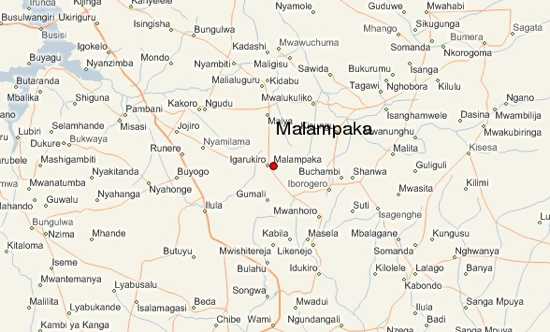
The case involving William Unek is unique, in that Unek perpetrated not one, but two deadly massacres that occurred three years apart. Despite the incredibly large death count, both massacres received surprisingly little media coverage. What is known is that, in 1954, Unek worked as a police constable in the Belgian Congo. During this period he embarked on a brutal killing spree and murdered at least 21 people with an axe, while injuring many more. The motive for this massacre remains unknown. He then apparently escaped to Tanganyika, where he assumed a false identity and started his life over.
Unek found work again, though it isn’t clear what profession he chose, before repeating history and going on another murderous rampage on February 11th, 1957. This time his chosen weapon was a stolen rifle. He stormed through a local village, invading people’s homes and shooting anyone he found inside. At some point he torched a house and the blaze killed a further three people. He also hacked several people to death with the axe and strangled a young woman. During this massacre he managed to kill 36 villagers before fleeing. This time police sent out dogs and a helicopter to hunt Unek down, and eventually he was discovered at a house just two miles away from the scene of the massacre. The house owner conversed with Unek until police arrived, at which point Unek was fatally injured while trying to evade capture.
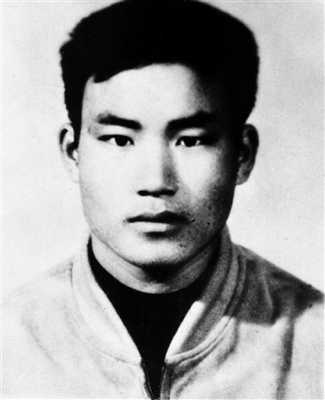
Woo Bum-Kon is responsible for the deadliest shooting spree in South Korea’s history. According to his relatives and close friends, before the massacre Woo was severely depressed and had anxiety issues, as well as an inferiority complex. Prior to the rampage in 1982, he had served in the military and worked as a police officer in the province of Gyeongsangnam-do. His motive was apparently blind rage; on the night of the massacre Woo got into a fight with his girlfriend after she woke him up by swatting a fly on his chest. He assaulted her and wrecked his house in a tantrum before going out drinking. He then went to the police station and somehow managed to gather an arsenal of weapons without anyone noticing. This arsenal consisted of two rifles with hundreds of rounds of ammunition and seven hand grenades.
At around 9:30pm, Woo visited a local village, where he positioned himself behind some bushes and began firing upon passers-by with an M1 Carbine. His girlfriend, who had gone out looking for him, happened to walk by at this moment and he shot her in the upper thigh, wounding but not killing her. Later that night Woo visited a local post office and shot three people dead, before cutting the phone lines of the entire village in order to prevent anyone from calling the emergency services. He then began to target houses at random, using his position as a police officer to trick people into letting him inside, before pulling out his rifle and murdering everyone. Using this method, Woo managed to kill a total of 42 people in five different villages.
He broke the trend on numerous occasions, for example one time he took a family hostage in their home and ordered a teenage boy living there to go and buy him a drink from the local grocery store. The boy complied, but when he returned Woo simply killed him and all of his family. On another occasion Woo was unable to gain entry to a house, so he used a grenade to kill everyone inside. The massacre lasted for eight hours – culminating in Woo killing himself with two grenades in a suicide attack that claimed four lives. In the aftermath, many police officials involved in the manhunt for Woo resigned, as much blame was placed on them for not ending the rampage sooner. Police were very quick to be informed of the shootings but were sluggish in their attempts to track down the perpetrator.
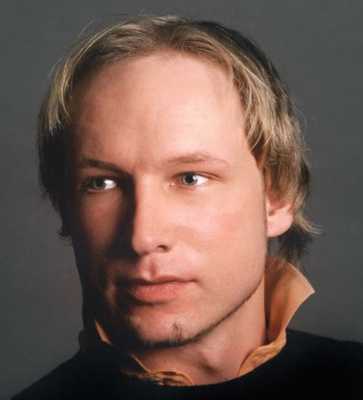
Sadly, the deadliest spree killing in history is also the most recent. Anders Behring Brievik is a right-wing extremist who murdered 69 teenagers aged 14-19, at the Norwegian island of Utoya. On July 22nd, 2011, before the shooting began, Breivik detonated a massive car bomb in Oslo which killed 8 people. He then boarded a ferry to the island of Utoya were 600 teenagers were attending a youth summer camp. Brievik wore a police uniform and used a forged police ID badge to pass through security without incident. He then approached the campers and falsely informed them that he was a police officer who had come to perform a routine check after the bombing in Oslo. He announced that everyone should gather around him while he did a head count, before pulling out a rifle and indiscriminately firing into the crowd.
Survivors later described the horrors that occurred on the island; many of whom said that Breivik targeted individuals after the initial spray of bullets, and laughed as he murdered those who begged for their lives. Many people tried to play dead in order to survive, but Breivik came back and shot the bodies twice. Some campers desperately jumped into the water and attempted to swim to shore, but many drowned and only a few were able to be rescued by boaters who came to help. Breivik also shot many people in the water, causing otherwise non-fatal injuries that incapacitated victims and caused them to drown. Some of the teenagers hid in underground lavatories and used cell phones to communicate with each other via text messages. After 90 minutes of carnage, police arrived, and Breivik surrendered peacefully.
The massacre had been planned by Breivik since 2009, at the very least. He created a diary of the planning process that he allegedly shared with terrorist organizations over the internet. The diary shows that his motive was to use the influence of the attacks to start an uprising against the Norwegian government. The diary also reveals that he made an unsuccessful attempt to purchase firearms in Prague in 2009, and that he founded a farming company called Breivik Geofarm, as a cover for his bomb making experiments. Breivik has been observed to be completely sane by court psychiatrists, but he is described as having strong narcissistic tendencies in his personality. He hasn’t received a prison sentence yet, though it is certain that he will live the rest of his life behind bars.
